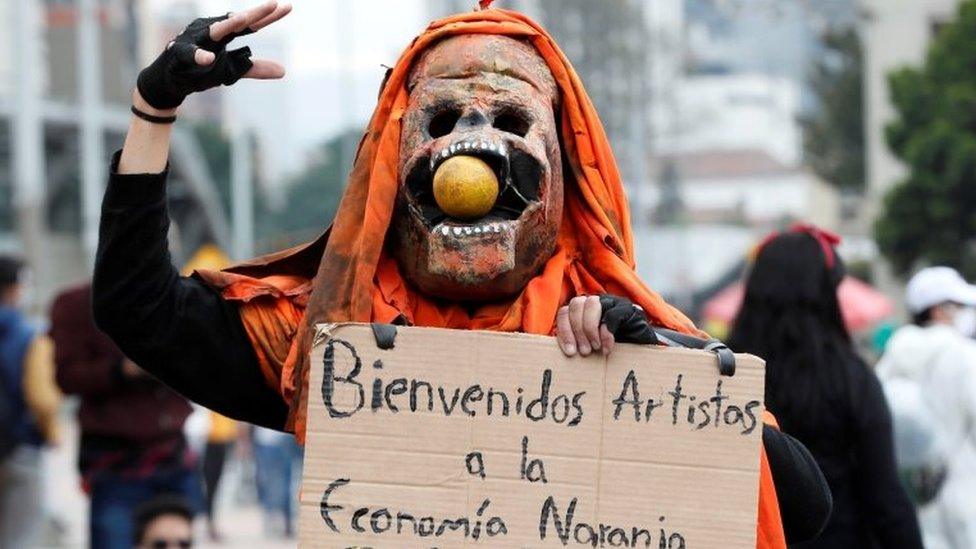Colombia protests: Shortages in Cali as demonstrations rumble on
- Published
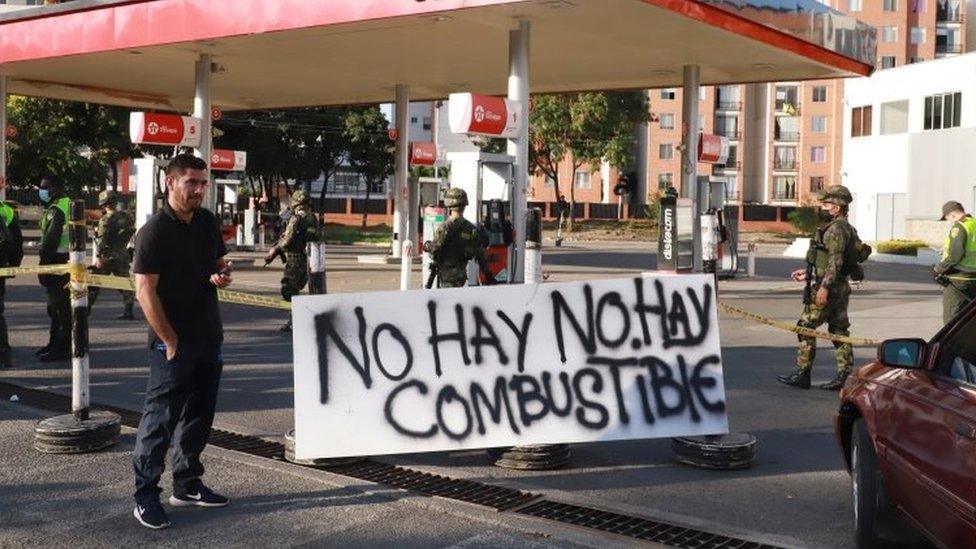
Cali residents have complained about fuel shortages caused by roadblocks
Three weeks into nationwide anti-government protests, residents in Colombia's third-largest city, Cali, say they are struggling to get petrol and some food items.
Protesters have blocked some of the main access roads into the city and deliveries have been severely disrupted.
Cali has been the scene of some of the worst clashes between protesters and security forces.
At least 42 have died in the protests.
While food and medicine have been reaching the city after a number of "humanitarian corridors" were established last week, the disruption has been severe.

Cali is paralysed
By Daniel Pardo, BBC Mundo
The demonstrations over the past two days in Cali may have been massive, but they were peaceful and colourful, with dances, music and artistic tributes paid to those who died or were wounded in previous protests. You don't see many police on the streets.
However, reports of police violence continue to come in from other parts of the country. Not far from here, in Popayán, dozens of civilians were injured in clashes with security forces on Wednesday.
Cali, in any case, is paralysed. Everyday life has been affected by the blockades and petrol shortages: if you need a plumber or someone to fix your internet connection, you are going to have to wait for days, or even weeks. Most shops are shuttered and their doors have been sprayed with anti-government graffiti.
Young masked protesters have blocked roads with branches and wires. They tell me they are protesting "for a different country" and I can't see them giving up anytime soon.

Cali's Mayor Jorge Iván Ospina said it was vital that supplies be allowed through without any hold-ups.
"Some supplies or limited supplies are not enough," he said about the agreement with protesters blocking the roads to let some delivery trucks pass.
The city depended on food from neighbouring regions to feed its residents, he explained.
Traders at one market said there was a shortage of potatoes while those at another market said they had received a delivery but at a price 30% higher than usual.
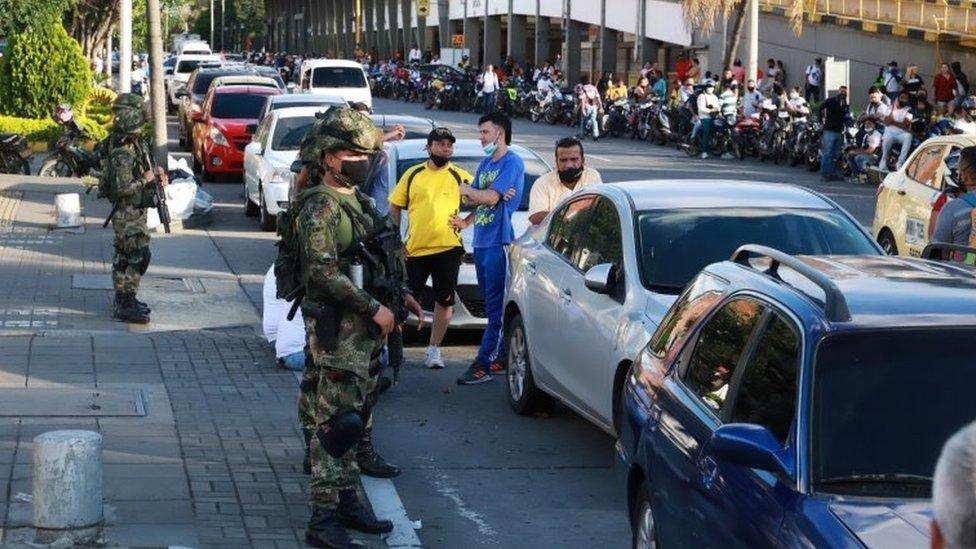
Long queues formed at petrol stations
Residents have reported queuing for up to 12 hours for petrol.
No sign of abating
The protests in Colombia ran into their third week on Wednesday. While they were originally in opposition to a now-suspended tax reform, they have since turned into much broader demands, including abolishing university tuition fees, introducing a universal basic income, disbanding the riot police force and improving the security for rights defenders and indigenous activists.
Mayor Ospina said Wednesday's protests in Cali had been peaceful and praised participants for their restraint.
Previous protests have turned violent with the deadliest, on 3 May, resulting in at least five people being killed and 33 injured in the neighbourhood of Siloé.
The United Nations said it was shocked at the events in Cali and accused police of firing live ammunition.
Mayor Ospina said on Wednesday that he had met victims of the clashes in Siloé and that he would ensure that the issue would be taken to "the highest courts of justice".
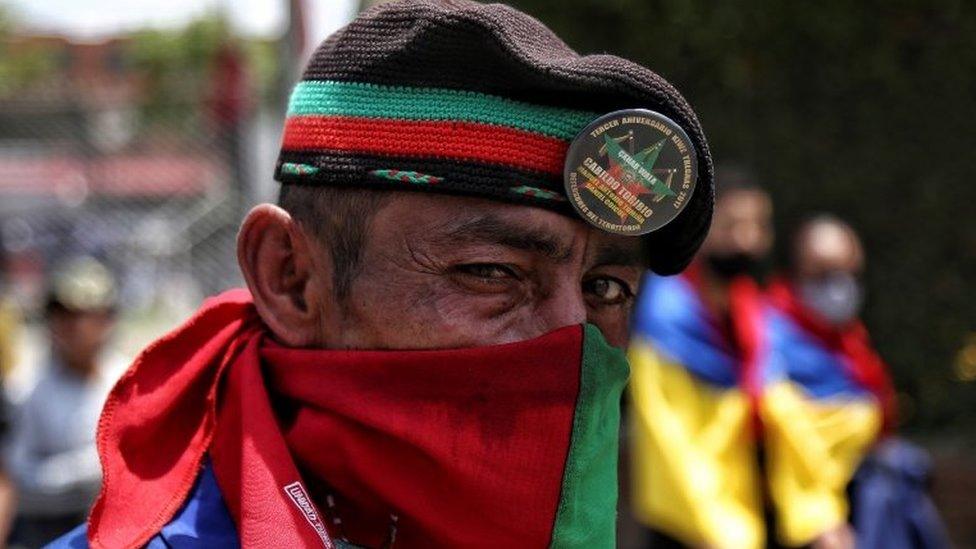
Indigenous groups have joined in the protests
He also had a meeting with members of indigenous groups who joined the protests last week.
In another violent incident in the city, eight indigenous people were injured when unidentified gunmen in civilian clothes fired at the roadblock they were manning. Police said four non-indigenous people were injured in that same incident when they were set upon by members of the indigenous group with stones and machetes, but the latter have denied launching any attacks.
Colombian President Iván Duque met with members of the National Strike Committee, the umbrella group which has been organising some of the protests, on Monday, but they failed to reach agreement.
He has since said that his government is willing to organise a roundtable to negotiate an end to the protests with the National Strike Committee.

You may want to watch:
A snapshot of the peaceful and violent anti-government protests continuing across the country
Related topics
- Published4 May 2021
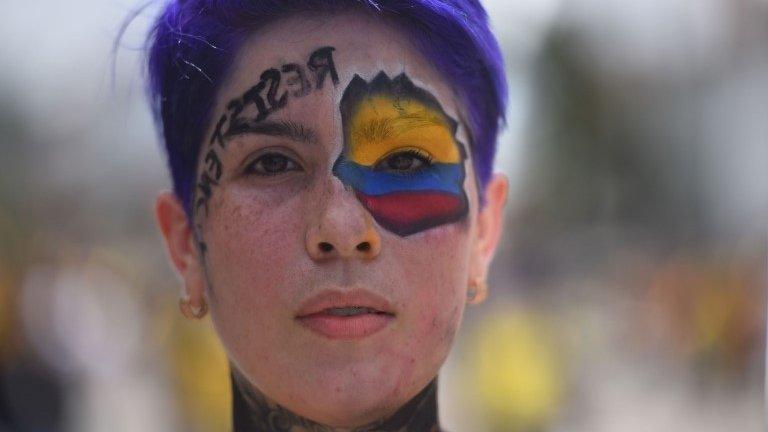
- Published3 May 2021
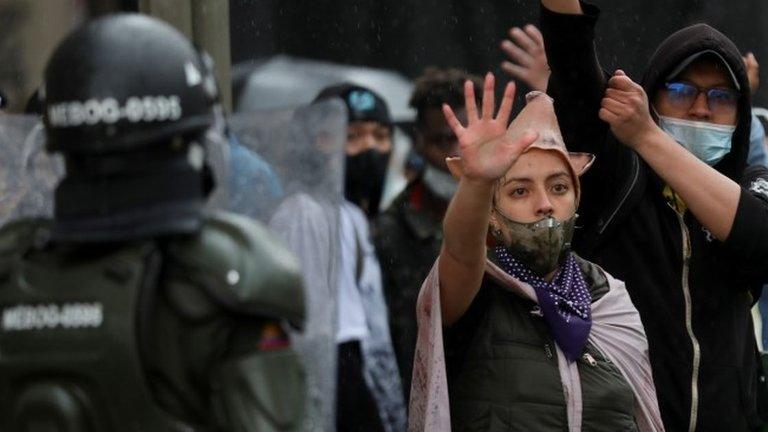
- Published2 May 2021
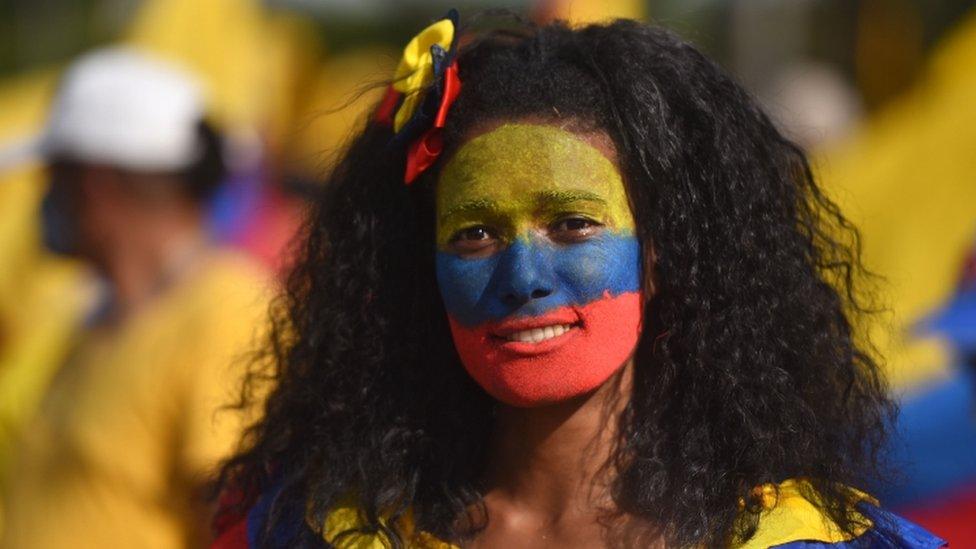
- Published29 April 2021
